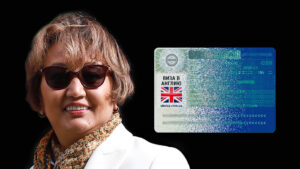Latest News

министерство внутренних дел направит 300 новых сотрудников для борьбы с группами, занимающимися переправкой мигрантов через Ла-Манш

Call for evidence on UK border refusals

Population jumps by 700,000 in a year, mostly due to migration

New absence rules make it easier for EU citizens to qualify for settled status

UK and France strike deal to return illegal migrants and open new legal route

No more BRP. How to switch to eVisa?

Skilled Worker Visa: salary & skill thresholds increased

Care worker Visa route officially closed to new overseas applicants



